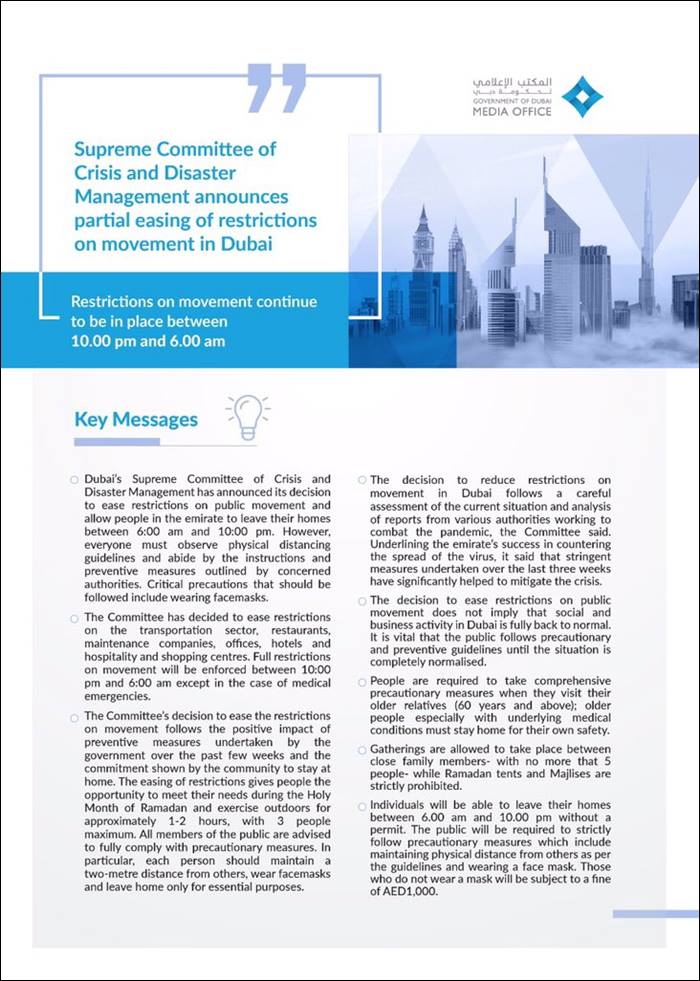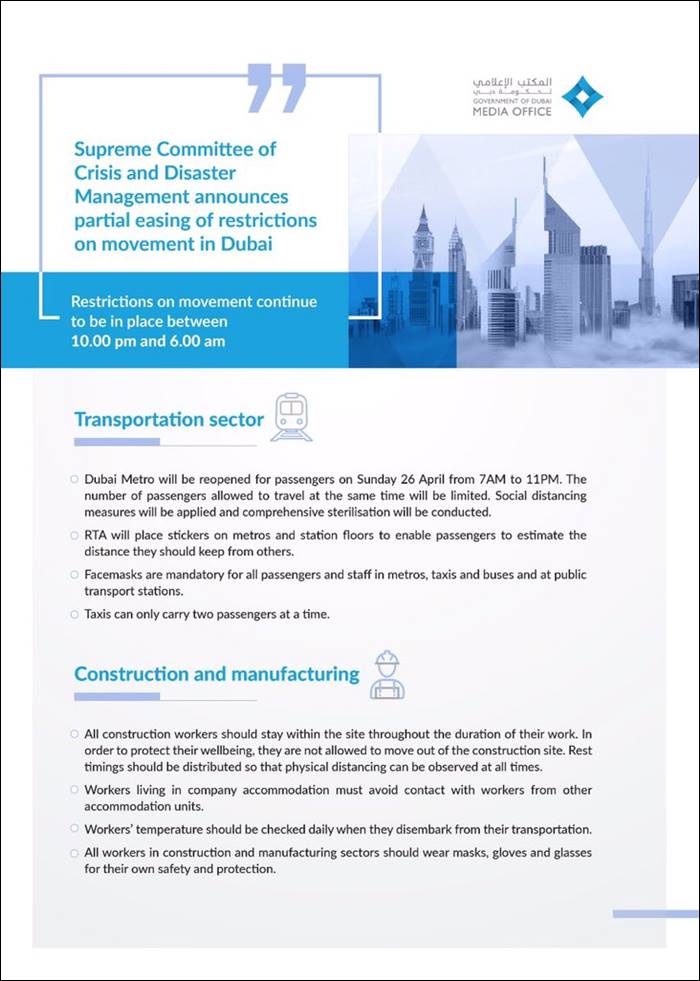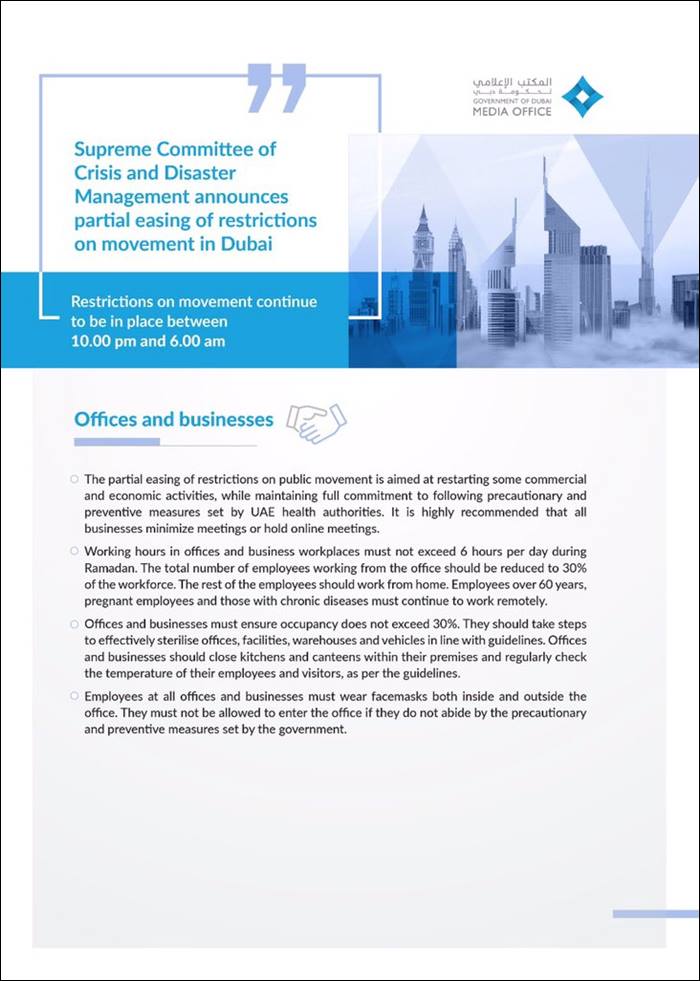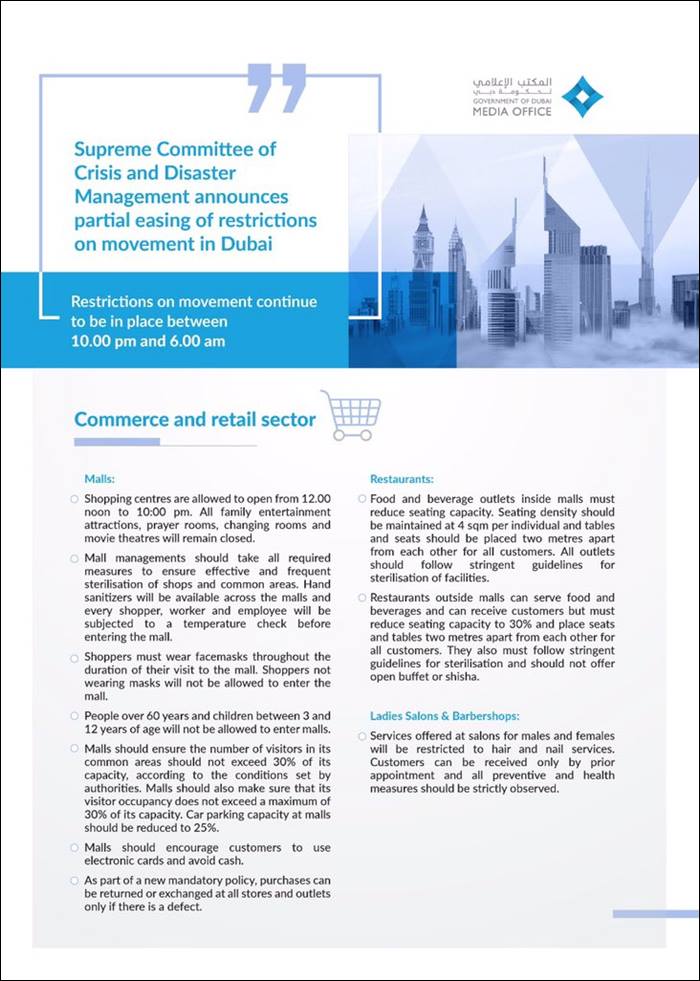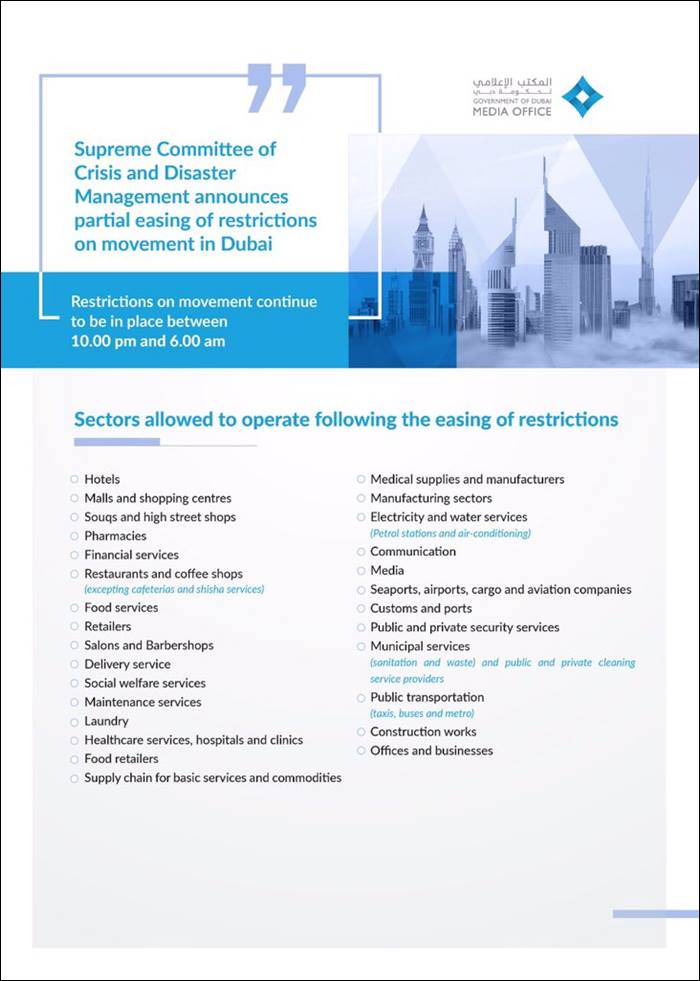Rules and regulations on movement restrictions have been updated and eased by Dubai authorities and this decision was made following analysis and evaluation of counter-measures to combat the virus in the last 3 weeks. Residents are now allowed to go out of the house from 6am to 10pm and commercial establishments are starting to resume their operations.
Also Read: RTA Dubai Metro Train and Buses to Operate on 26th April 2020
In line with this, the government has set a few new guidelines for workers in office institutions as well as those in construction and manufacturing. Some of these guidelines include a 30% workforce capacity in offices, requirement to wear face masks at all times, etc.
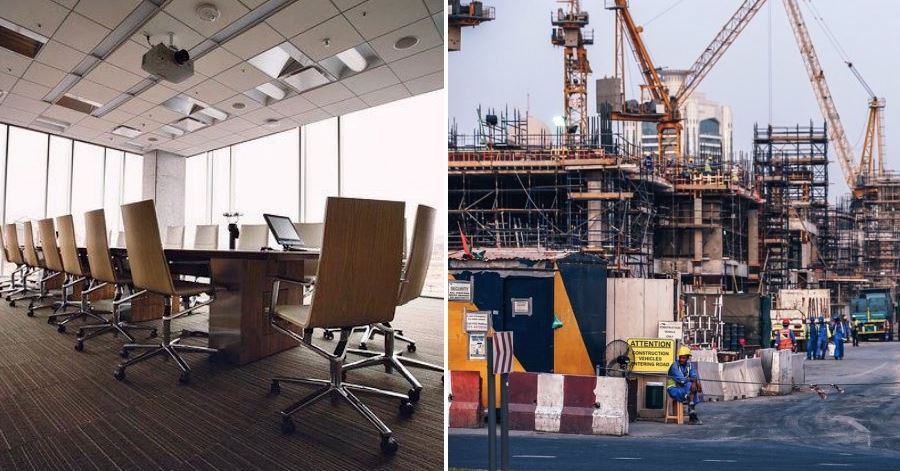
UPDATE: Dubai Movement Restriction Guide for Expat Employees and Labourers
It is important that employees are aware of the new rules and guidelines. For expats employees and labourers, please go over the new rules you are required to follow below:
Administrative Offices for Companies and Institutions
- The partial easing of restrictions on public movement is aimed at restarting some commercial and economic activities, while maintaining full commitment to following precautionary and preventive measures set by UAE health authorities. It is highly recommended that all businesses minimize their meetings or hold online meetings.
- Working hours in offices and business workplaces must not exceed 6 hours per day during Ramadan. The total number of employees working from the office should be reduced to 30% of the workforce. The rest of the employees should work from home. Employees over 60 years, pregnant employees and those with chronic diseases must continue to work remotely.
- Offices and businesses must ensure occupancy does not exceed 30%. They should take steps to effectively sterilise offices, facilities, warehouses and vehicles in line with guidelines. Offices and businesses should close kitchens and canteens within their premises and regularly check the temperature of their employees and visitors, as per the guidelines.
- Employees at all offices and businesses must wear face masks both inside and outside the office. They must not allowed to enter the office if they do not abide by the precautionary and preventive measures set by the government.
Below is the posts shared by Dubai regarding the updates for offices and businesses:
Employees are allowed to work in offices only if it is absolutely necessary. Their numbers should not exceed 30% of the total workforce. The rest of the workforce can continue working remotely from home. pic.twitter.com/qdsCOBc9NQ
— Dubai Media Office (@DXBMediaOffice) April 24, 2020
Construction and Manufacturing Workers
- All construction workers should stay within the site throughout the duration of their work. In order to protect their well-being, they are not allowed to move out of the construction site. Rest timings should be distribute so that physical distancing can be observed at all times.
- Workers living in company accommodation must avoid contact with workers from other accommodation units.
- Workers’ temperature should be checked daily when they disembark from their transportation.
- All workers in construction and manufacturing sectors should wear masks, gloves and glasses for their own safety and protection.
Below is the posts shared by Dubai regarding the updates for construction and manufacturing:
Supreme Committee of Crisis and Disaster Management announces partial ease of restrictions. Here are some rules and guidelines for the construction and manufacturing sector. pic.twitter.com/xHIAhJr0fp
— Dubai Media Office (@DXBMediaOffice) April 23, 2020
Exempted sectors
Below is a list of exempted sectors who are allowed to operate:
• Shopping malls
• Retail shops
• Open Souqs
• Pharmacies
• Financial services
• Restaurants and cafes (Shisha and buffets will not be served)
• Food services
• Delivery services
• Social welfare services
• Maintenance and repair services
• Laundry services
• Nail and hair salons (Only through pre-booked appointments)
• Healthcare services (Hospitals and clinics)
• Food Supply outlets
• Industrial supply chain for services and basic commodities
• Manufacturers of medicines and providers of healthcare and medical supplies
• Industrial sectors
• Water and electricity sector, petrol and gas stations and district cooling services
• Telecommunications
• Media
• Airports, airlines, ports, shipping
• Customs duty and border crossings
• Public and private security services
• Municipality services and public and private service providers involved in garbage collection, sewage management and general cleaning and sanitation
• Public Transport (taxis, buses and metro)
• Construction sector
• Hotels
• Office
Please see the full list of restrictions and guidelines below:
